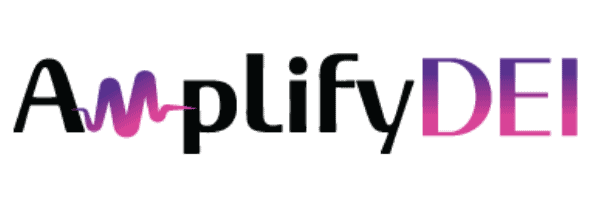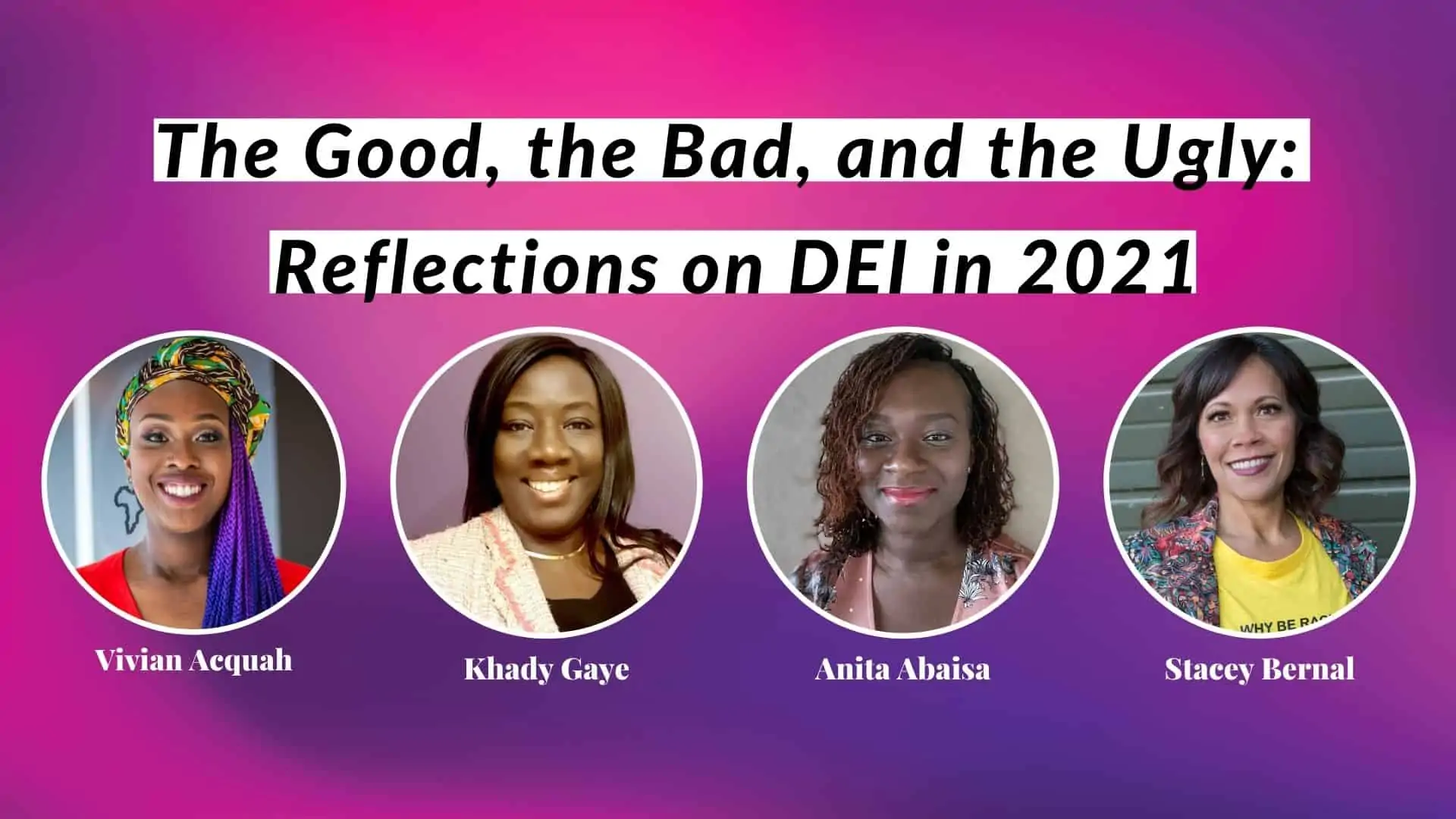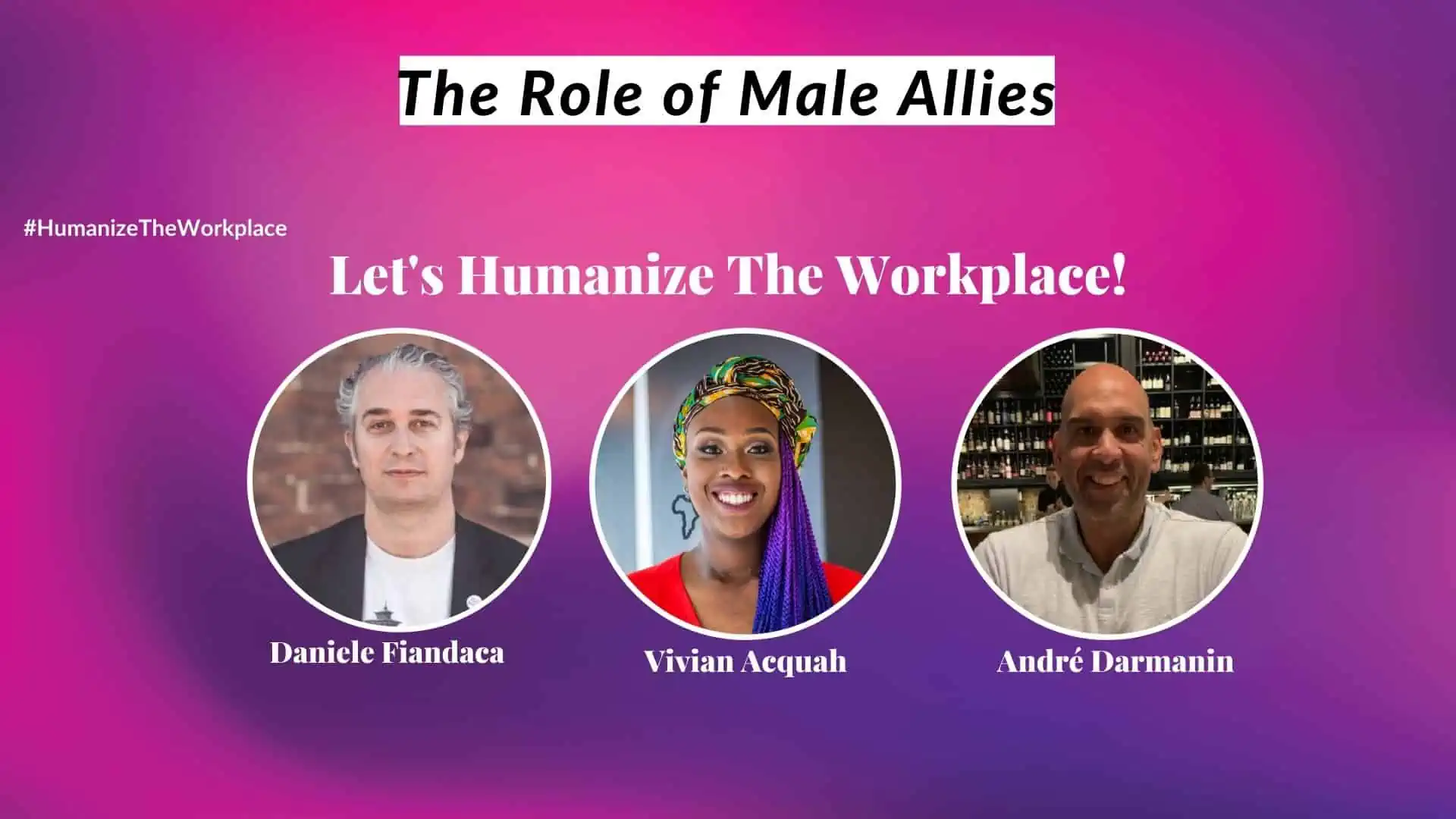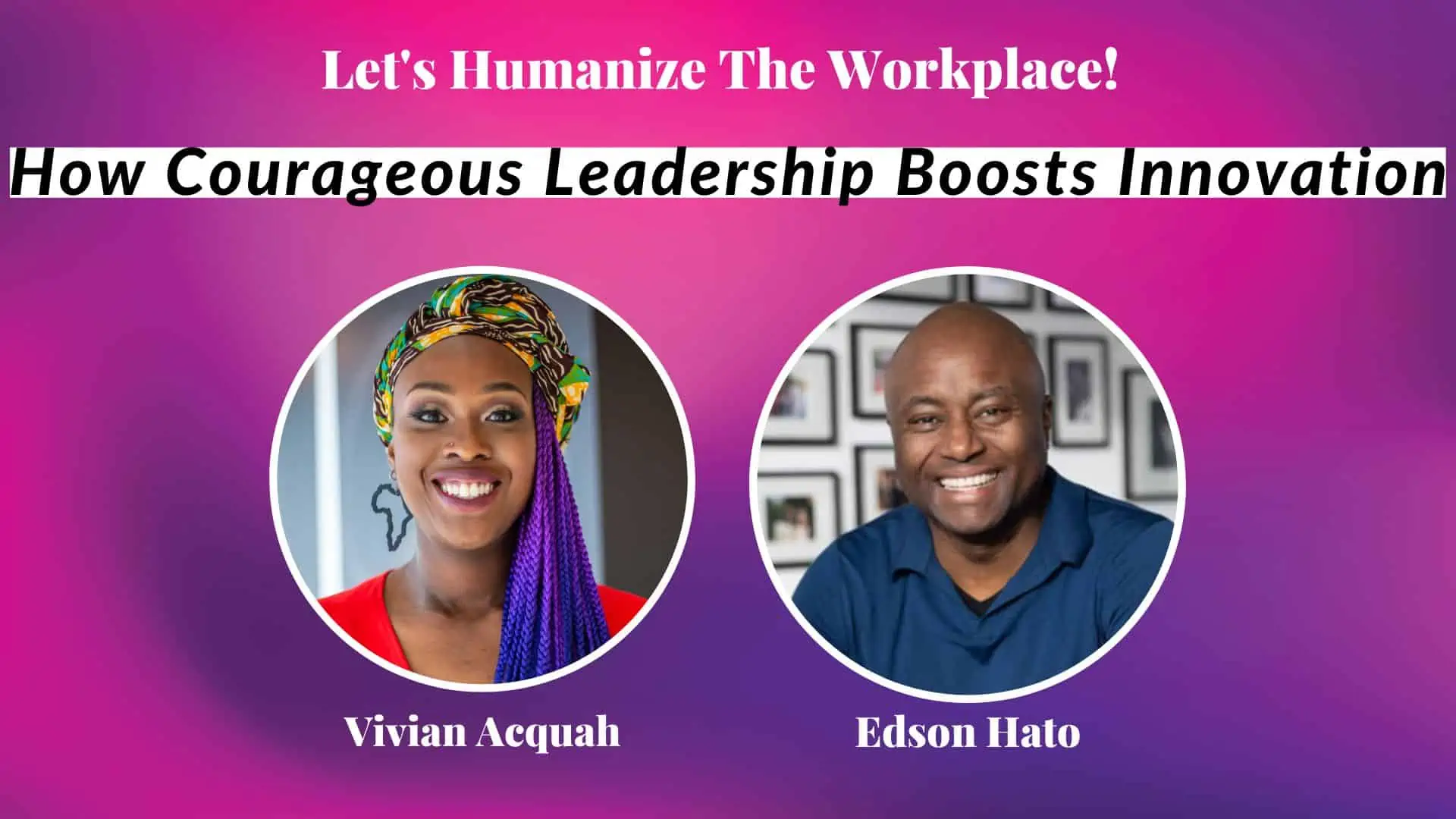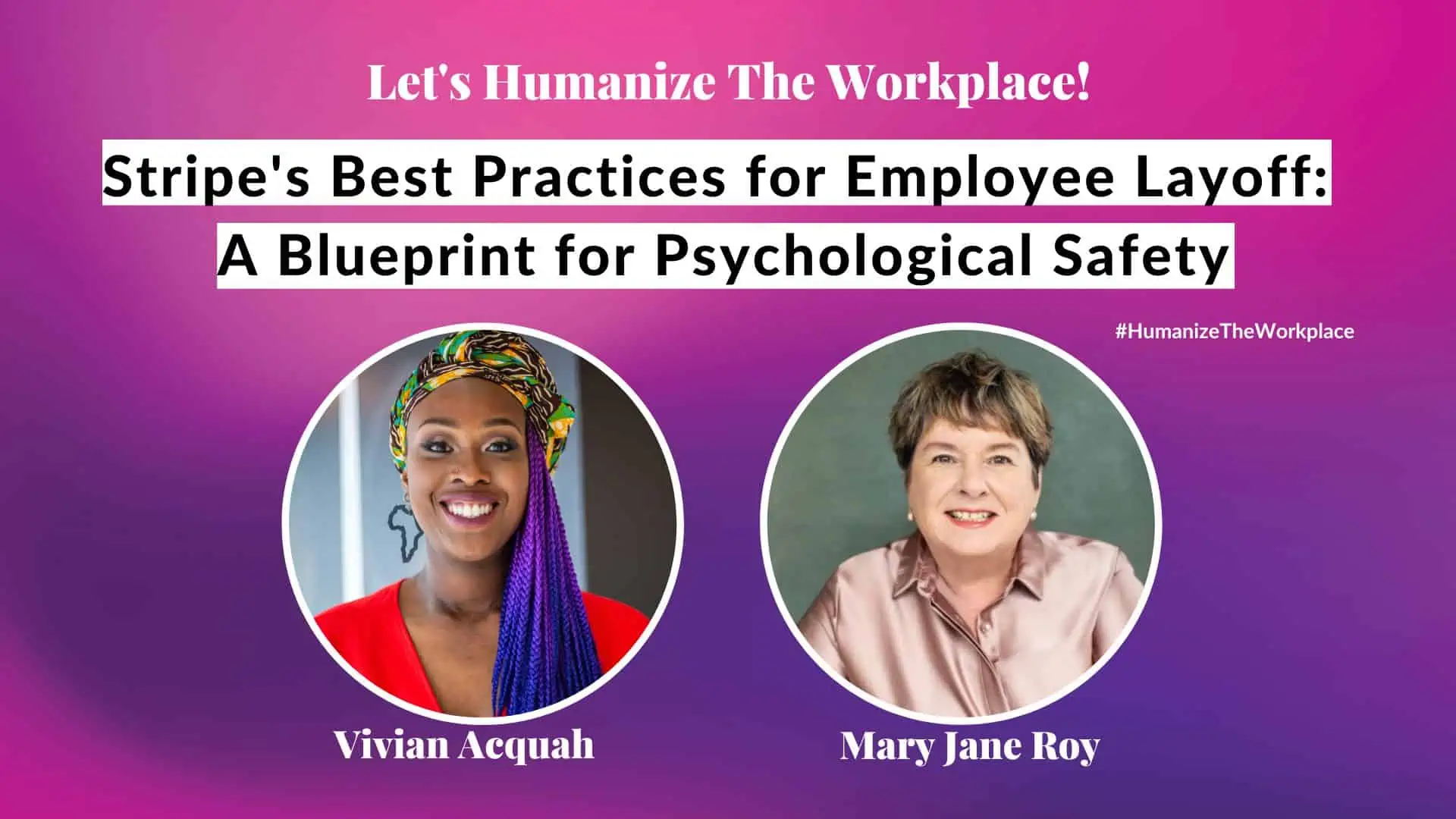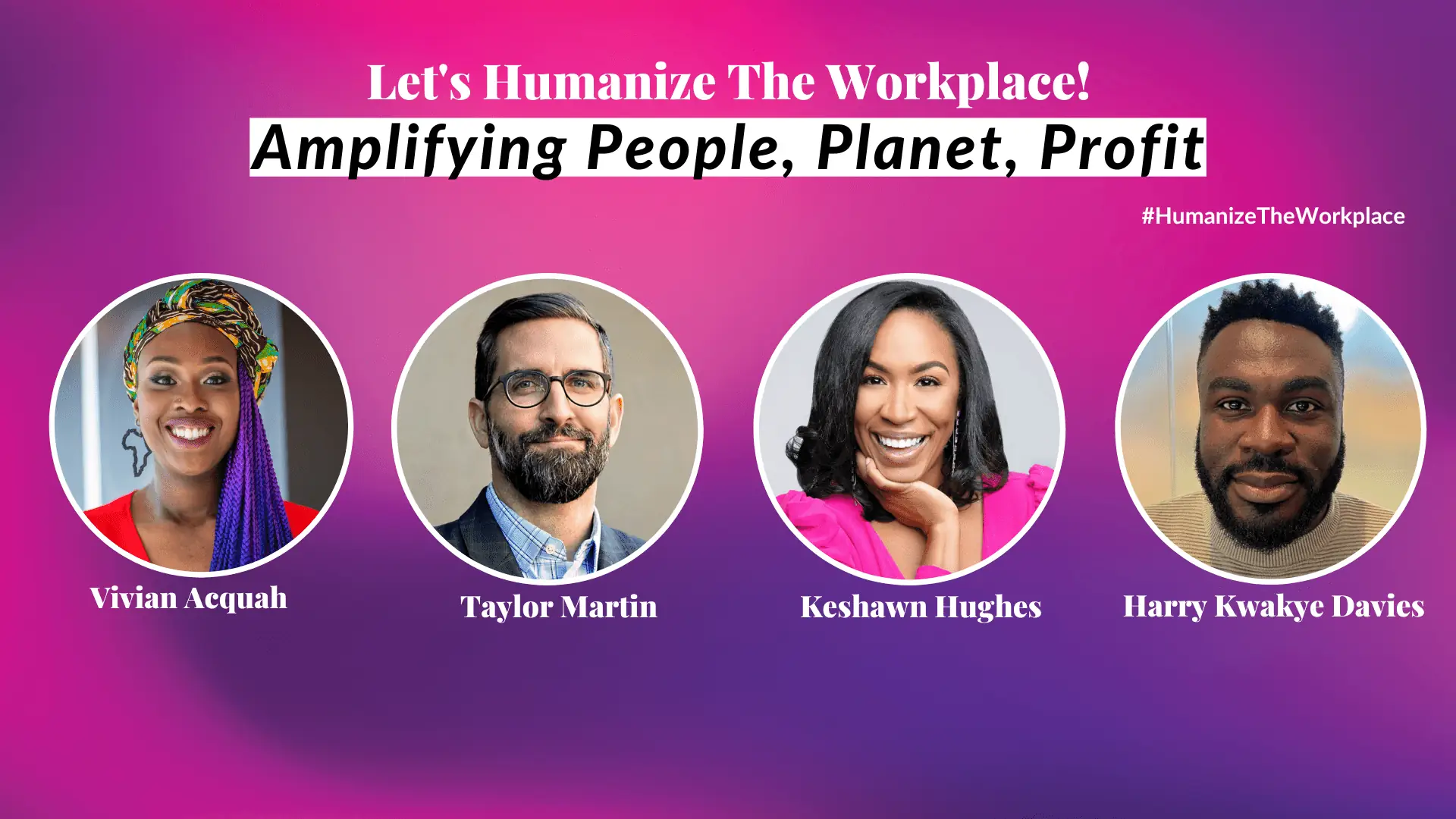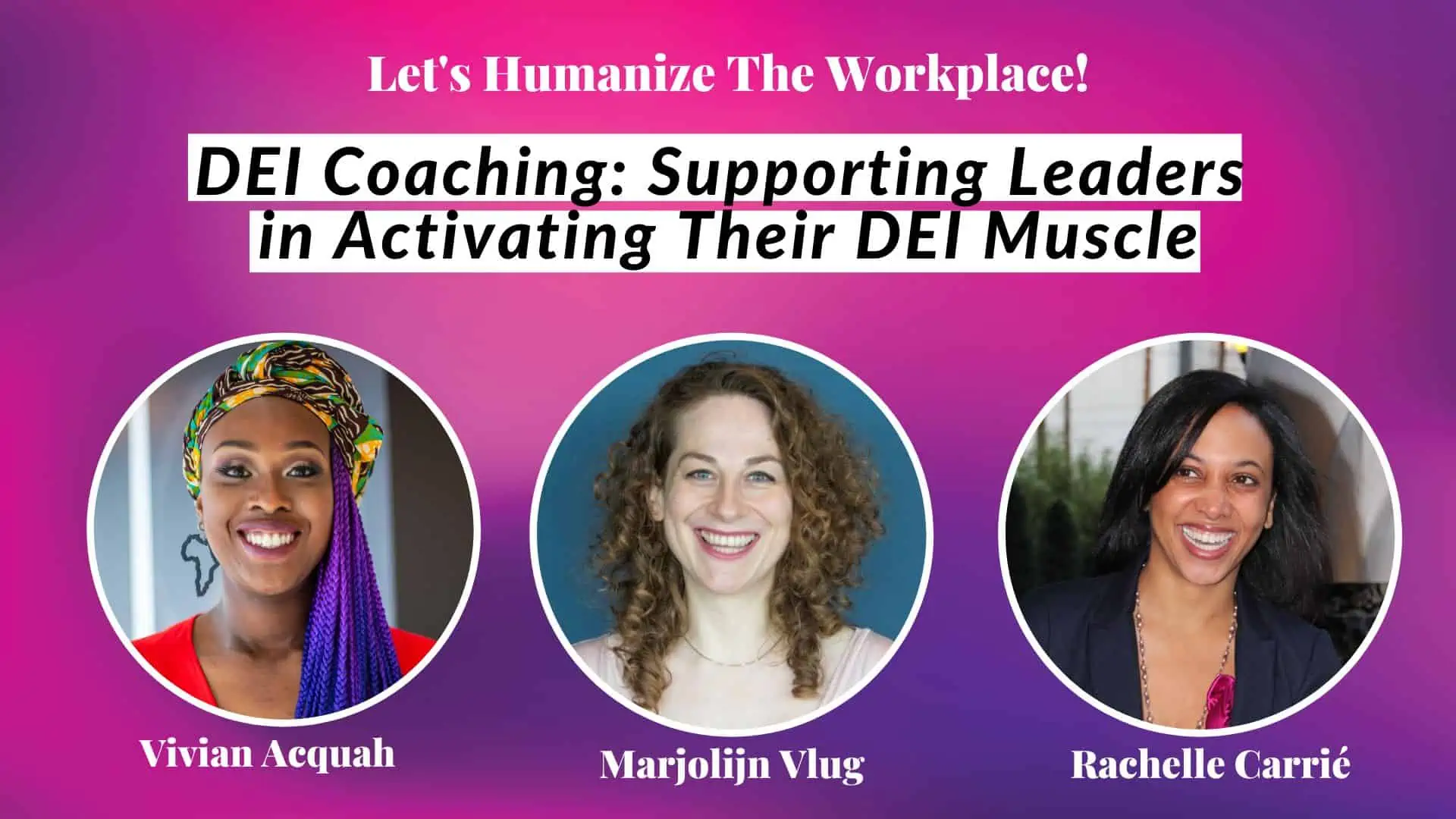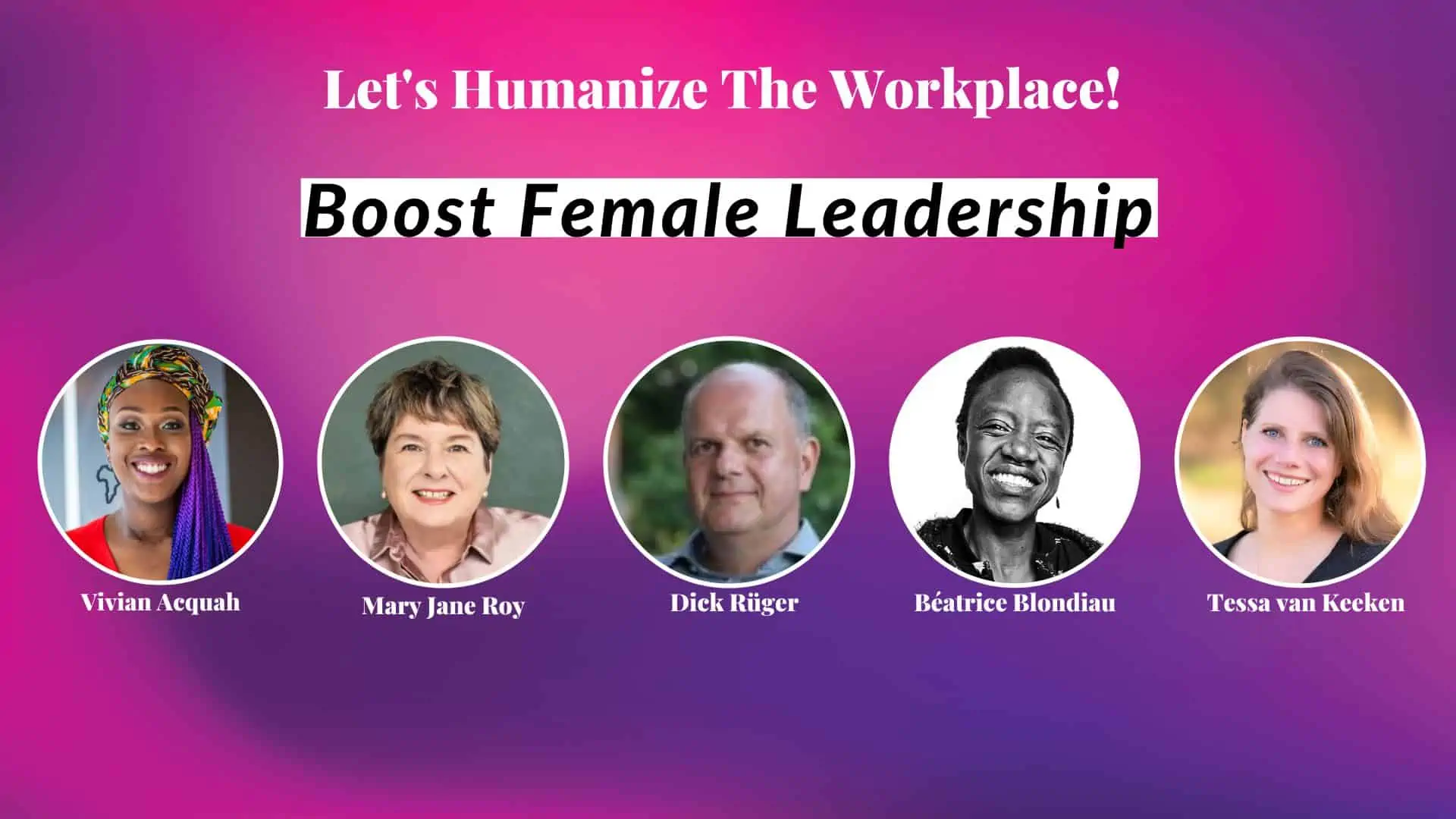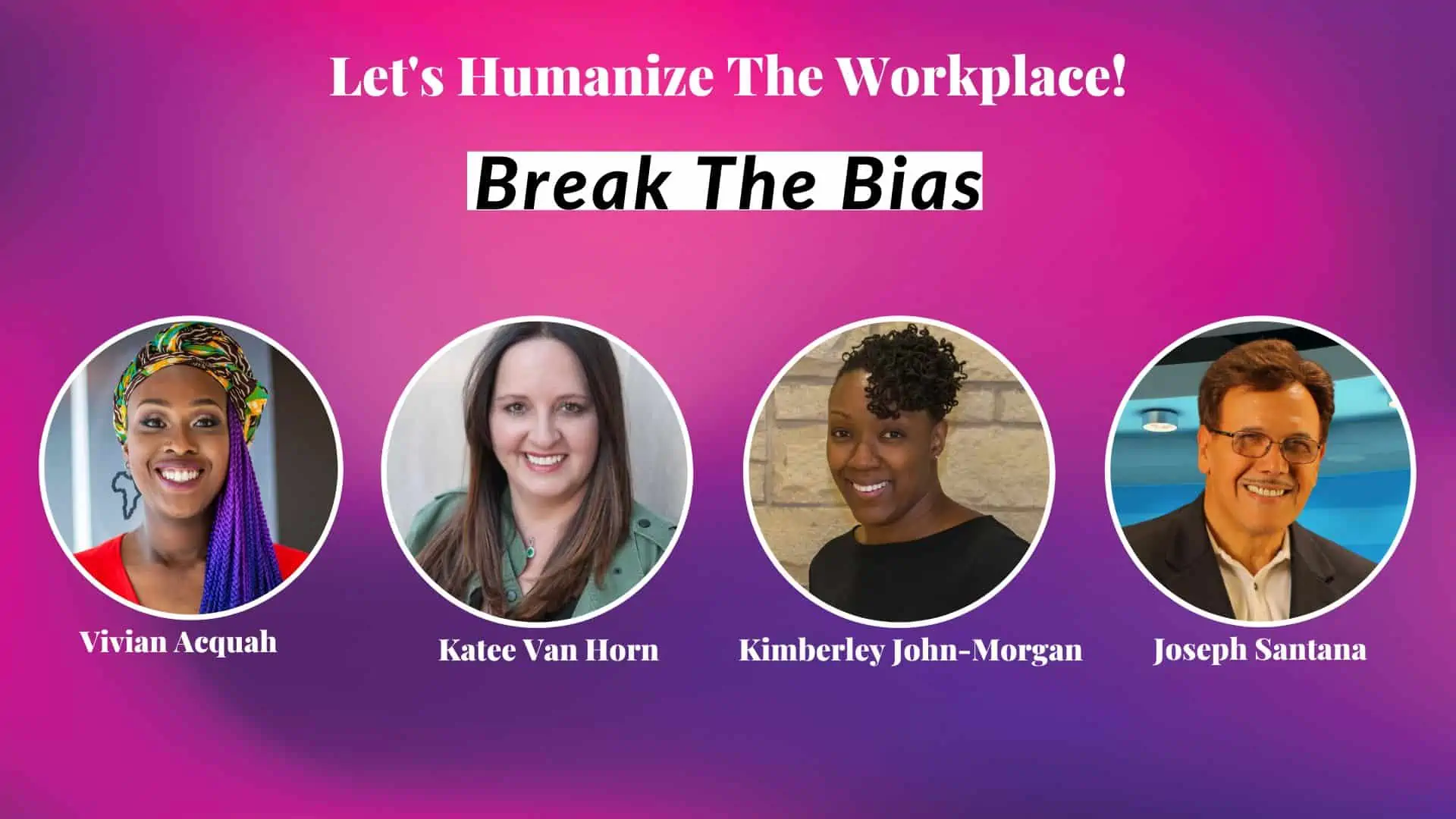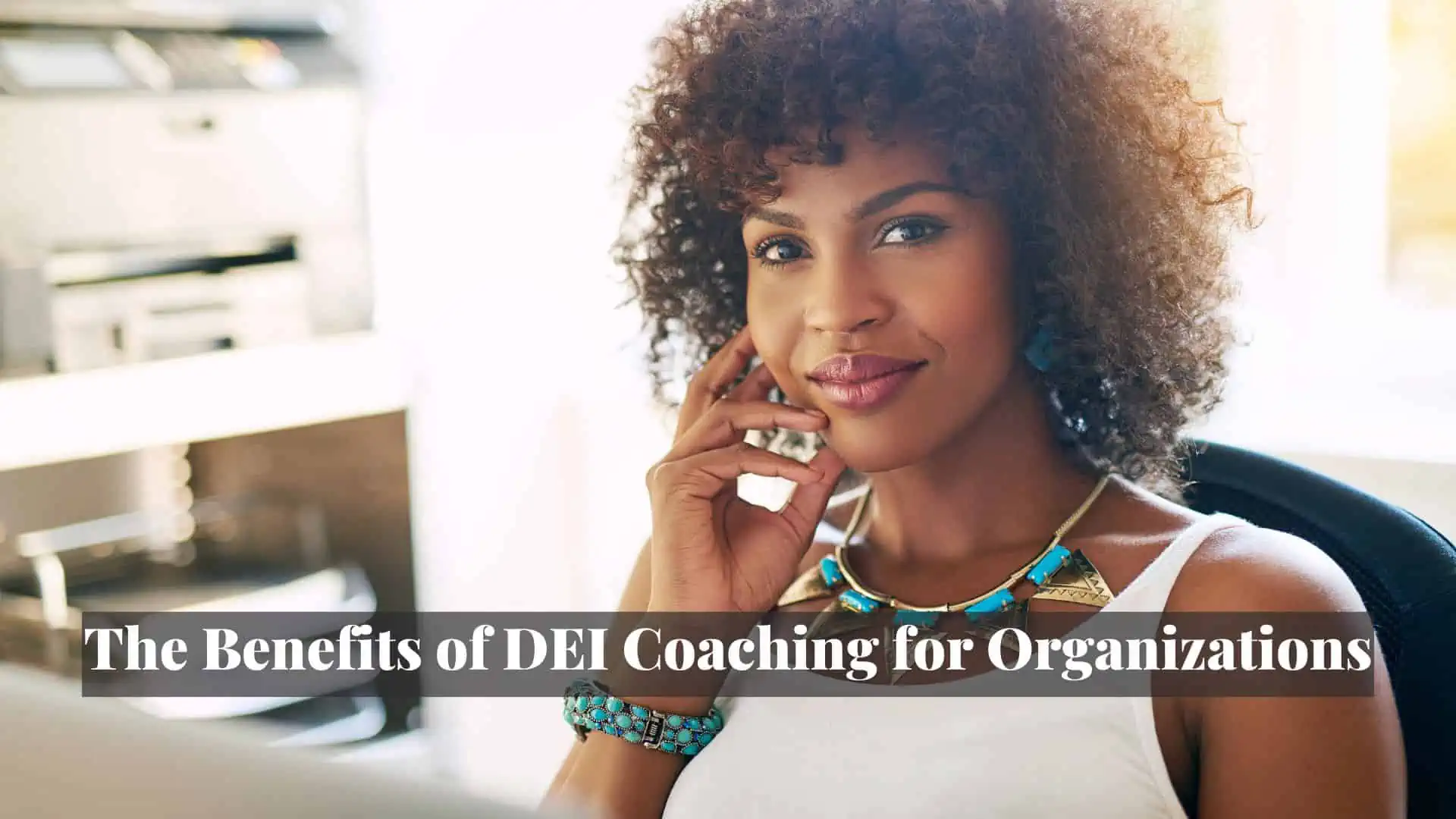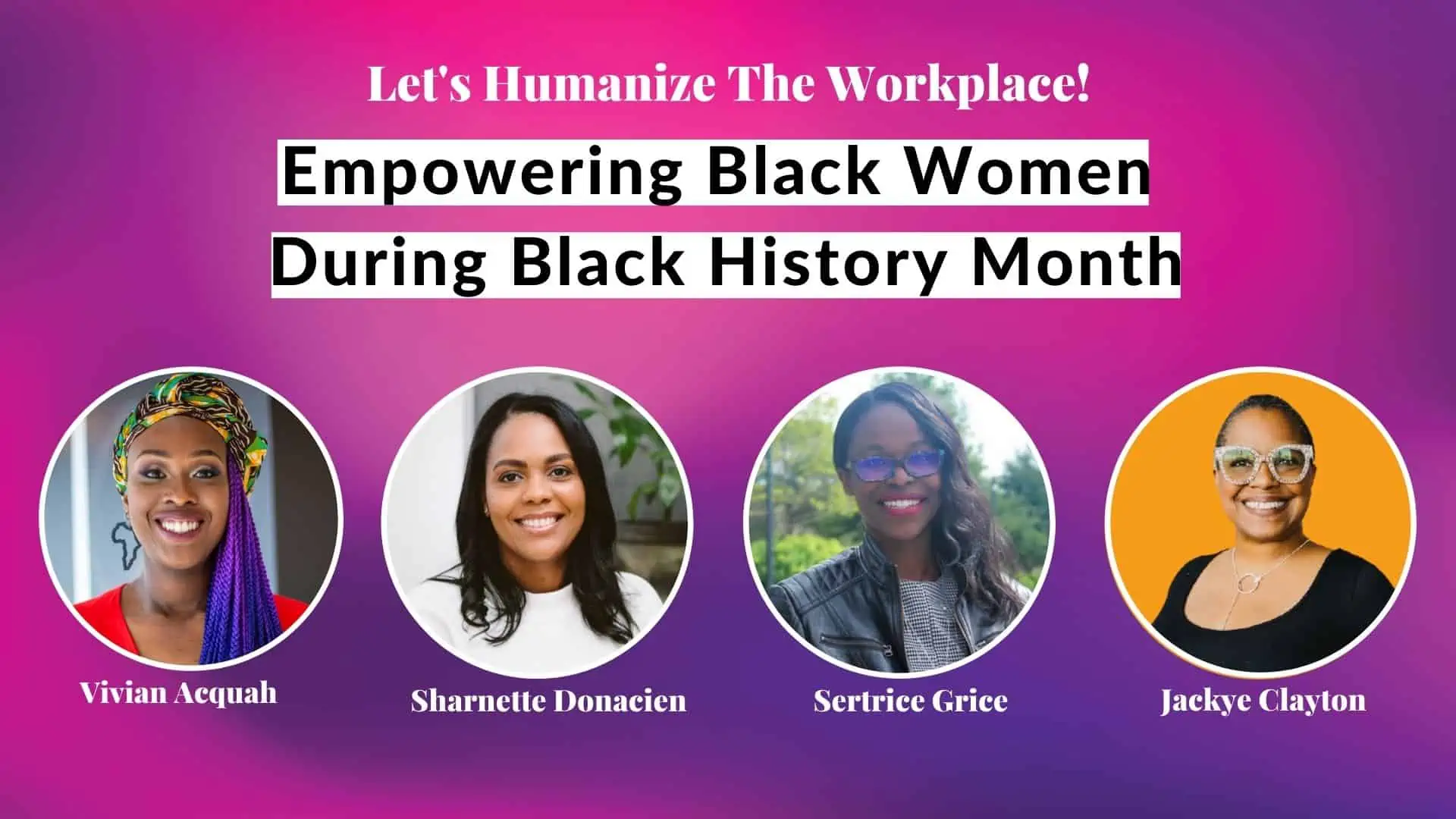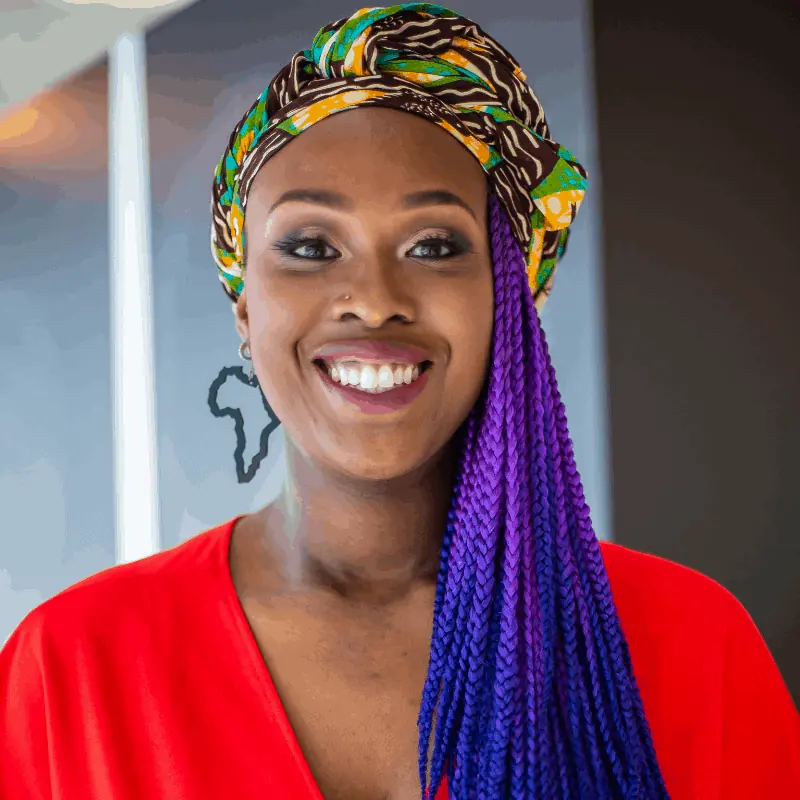We always want to find balance. Celebrating wins is equally important as exposing challenges. Calling out injustices is necessary, but so is calling in growth and development. We live in a world where there is good, bad and… ugly. This exists in all aspects of our world and also exists in Diversity, Equity, and Inclusion (DEI) advocacy.
For this reason, we want to reflect on the last year concerning DEI work. What was successful, what wasn’t? What are we proud of, and where do we want to let go in 2022? Knowing where we came from helps us understand where we need to go.
To discuss this topic, we had a panel of guests join us on an episode of Let’s Humanize the Workplace.
The speakers are
- Khady Gaye, Global HR Leader;
- Anita Abaisa, founder of IBIAS VR;
- Stacy Bernal, Global Change Instigator;
- Vivian Acquah, host of the show and Inclusive Workplace Wellness Advocate.
As we look at the good, the bad, and the ugly of DEI in 2021, let’s remember this: there is always a time to change and grow, and that time is now. We are capable of creating the change we want to see in the world.
View the video of the full impactful conversation below.
The Good: Awareness, Willingness, and Growth
There is no doubt that there have been major socio-cultural and political shifts in the last few years because of events like the COVID-19 pandemic and massive social movements after the death of George Floyd, for example. This has not only changed our day-to-day lives, but it has also made people awaken and realize that things need to change.
One of the positive things in DEI in 2021 was this awakening to the realization that we need to humanize the workplace. So many people are finally putting their foot down and realizing that they don’t want to work somewhere where they are not valued, and they don’t want to work somewhere they aren’t appreciated for who they are. So, employees are leaving and finding other places to work that support who they are and value DEI.
Another positive thing stemming from the aforementioned socio-cultural shifts is that many people are also awakening to their own internal biases. It doesn’t matter who you are or how your identity; you have biases—we all do. It’s becoming more common to recognize and overcome them. Here are a few ways that people can focus on overcoming their own biases:
- Cultivate curiosity and remain curious by listening to other people when they share their positive and negative experiences.
- Engage in conversations with diverse people, viewpoints, and ideas. Ask questions so that you can learn more about who they are and where they are coming from.
- Recognize that you have a bias, even if you identify as part of a marginalized community. We all need to look at ourselves to do the inner work before impacting other people.
Finally, it has been a positive movement in the DEI space that more people and organizations are willing to engage in the conversation. While we are not fully there yet, more people are eager to start the conversation and move towards practical action.
“My 16-year-old is autistic. And, as I say in my training, I cannot change him
to fit into the world. So, my job is to change the world to fit for him.”
Stacy Bernal
The Bad: Negative Voices
With the good comes the bad. And despite many positive strides in the DEI space in 2021, there is more work to be done. Unfortunately, there are still many negative voices that counteract the positive message of DEI.
A specific subset of the population might never buy in the way we want them to, and coming to terms with that is part of the journey. So instead, focus on those who are still curious, even if cautiously curious. In addition, many people are willing to learn and grow, so instead of focusing on the negative voices, focus on those who have open ears and hearts to learn and grow.
Combatting the bad can be very challenging, even exhausting, work to do. This is especially true when it is all over social media, in our faces with negative comments.
Here are some strategies to help handle the negative voices in the DEI space:
- Focus on those who are willing to change, not on those who will never change. Make peace with the fact that you cannot change everyone’s mind, but you can certainly impact many people.
- Understand where the negativity comes from—a lot of nasty comments are driven by fear or ignorance. Cultivating curiosity and compassion can help us interact well.
- Remember that what we see on social media is not the whole picture. Social media can really amplify the negative, but it is never representative of everyone.
The last negative of the DEI journey in 2021 is that we are still only at the beginning. There is a long way to go, and that can be tiring, at times, to consider how far there is still to go. This can be seen as a “bad” aspect of the DEI journey because it may cause defeat, discouragement, and perhaps even burnout. So, focus on building resiliency, working alongside others, and taking care of yourself with care and boundaries.
“But when you see those hatred comments,
that’s where I see the bad in the human being,
where either fear or ignorance probably drives it…
Don’t make assumptions—ask questions, be curious.
The more you ask questions, the more you will get to know
about every person’s invisible part. Because everyone has a story.”
Khady Gaye
The Ugly: Performative Action and Real-Life Consequences
It can be hard to talk about what’s ugly in the DEI movement, but it’s important to identify these things in order to move past them in the future. One of the first “ugly” elements is that there is still too much performative action by companies and individuals alike. Instead of being held accountable to do the real work of DEI, people seem to favour social-media posts that are on-trend. Real action needs to be taken to combat the ugliness of performative action.
The other “ugly” side to this whole discussion is that there are real-world consequences, and real people are still being hurt. The current system and culture don’t always let people be who they truly are, which means they live in fear, isolation, pain, and depression. Anyone who is different, whether they are part of the LGBTQ community, disabled, neurodivergent, or anything else—discrimination hurts people.
Finally, it is ugly when people still stay silent. Despite the many strides we have made as an overall culture, some people will still stay silent, even in the face of blatant and obvious discrimination. Staying silent and staying uninformed or uncaring is an ugly side to DEI initiatives in 2021 that needs to change in the future.
“The car started driving, so now we need action.
So, if you’re attending any event, or training, or whatever it is that you’re doing,
and nobody offers you some perspective of taking action,
you should ask your money back.”
Anita Abaisa
Conclusion
The purpose of looking back on 2021 to determine the good, bad, and ugly is not to just analyze it and leave it. Instead, it’s meant to inspire action and change for all of us now and into the future. And what it all comes down to is action. In 2022, the goal is to take action towards creating inclusive workplaces and environments so that each and every person is valued for who they truly are. We will learn from the mistakes of the past and transform both the “bad” and “ugly” into more and more good things for DEI in the workplace.
Our panellists were united in the pursuit of DEI action in 2022 and beyond. Khady shared that “every action counts. It’s now, and it’s us together.” Stacy agreed, stating that “we need action, not tomorrow, but today.” Stacy provided the encouragement that “we’re all capable, and we have the power.”
Action starts with each of us, but understanding our own internal biases, getting curious about them and starting on the path of learning and growth. Then, as we move into positions of power or influence, it is about making decisions that allow people to be comfortable in their own identity in the workplace. This is an action that we can all do—something to take into 2022 and years beyond.
“Find your changemakers, find the advocates that share the same fire,
share the same passion. Because together you stand stronger than being alone.”
Vivian Acquah.
Check out Amplify DEI to learn more about the virtual summit dedicated to activating and amplifying DEI through education, knowledge and learning from diverse speakers and guests.
